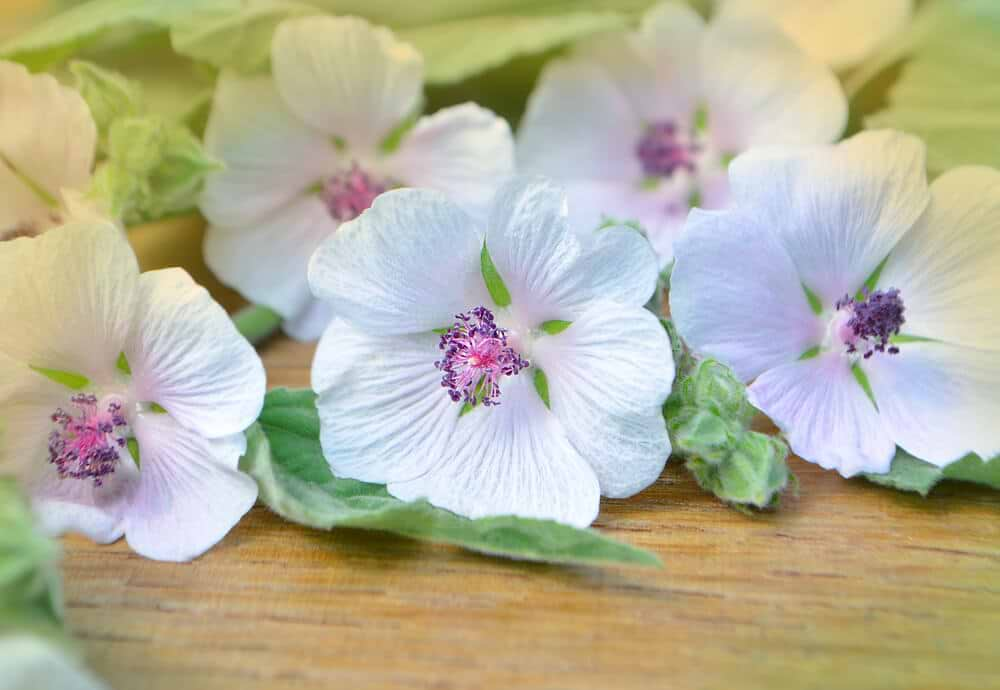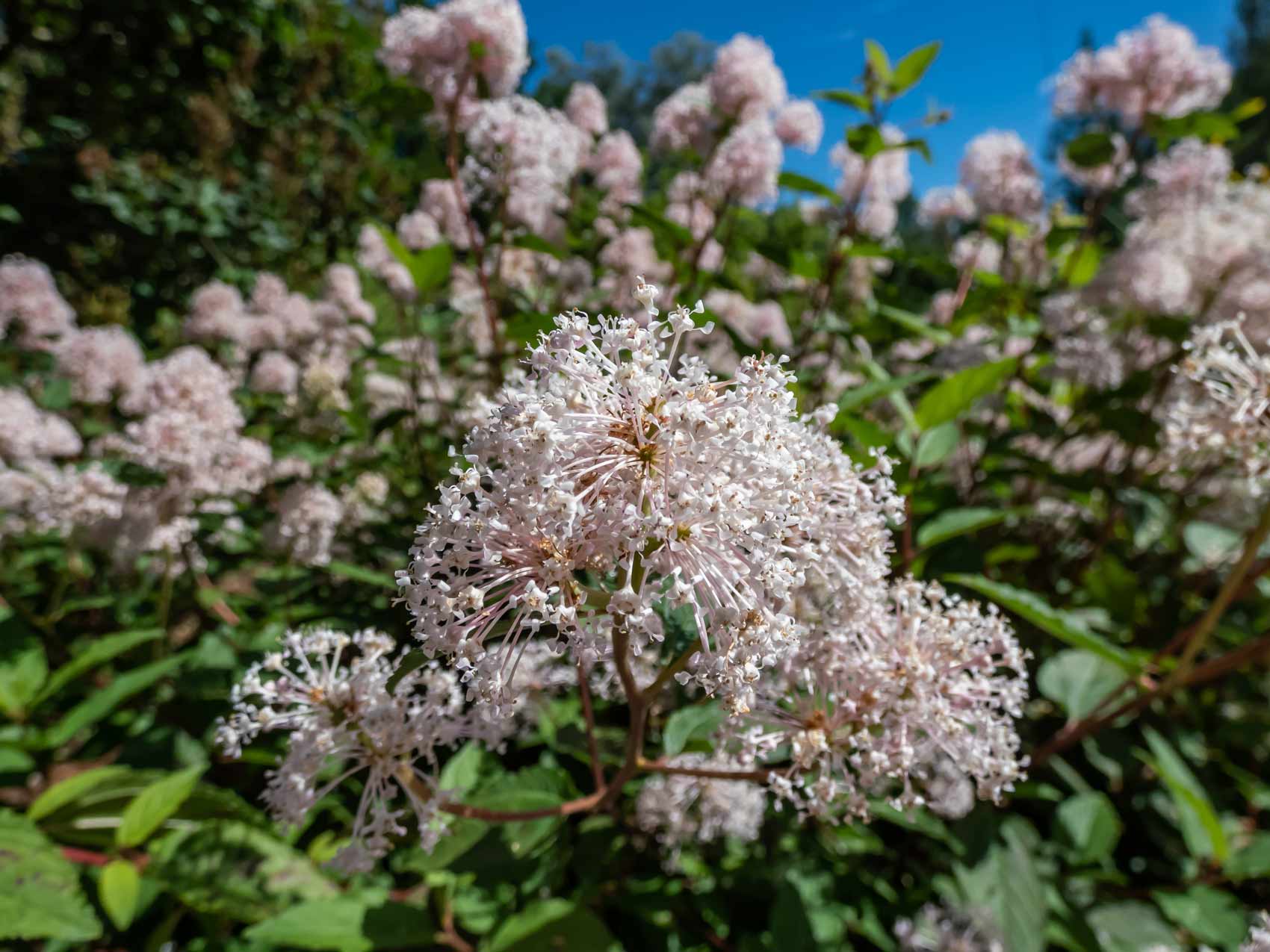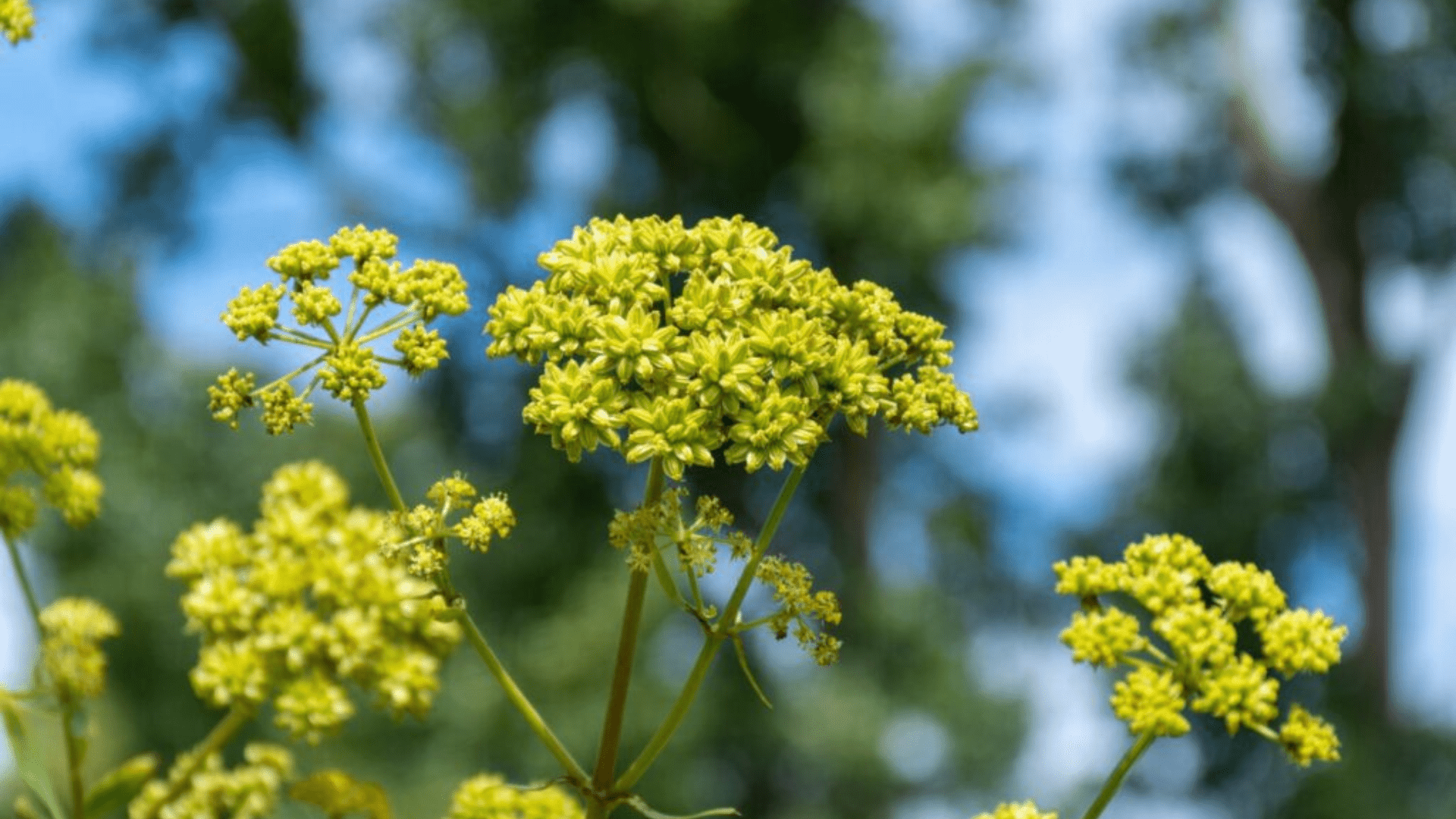Hold onto your gardening gloves! We're about to dive into the wild and wonderful world of shepherd's purse (Capsella bursa-pastoris), the unassuming plant that's been quietly revolutionizing wellness. This plucky little herb is the Indiana Jones of the Brassicaceae family - adventurous, tough, and related to your favorite cruciferous veggies (looking at you, broccoli and Brussels sprouts).
Born in the Middle East, shepherd's purse decided the world was its oyster and set off on a global domination tour. With its heart-shaped seed pods (nature's own emoji, if you will), this resilient rockstar has conquered diverse environments. It's earned the nickname "lady's purse," but don't let that fool you - this herb is all about equal opportunity healing.
Shepherd's purse isn't just here to prettify your garden and boost your health. From leaves to stems to seeds, every bit of this plant is also a culinary delight. Raw or cooked, it brings a unique peppery flavor to salads and dishes everywhere. Talk about a multi-tasker - it's like having a medicine cabinet and a spice rack rolled into one fabulous, heart-shaped package. So, whether you're looking to spice up your health game or your dinner plate, shepherd's purse is ready to prove to be your botanical BFF.
Beauty & Botanical Background
Shepherd's Purse, scientifically named Capsella bursa-pastoris, is a member of the Brassicaceae or mustard family, known for its small, white, cross-shaped flowers and distinctive heart-shaped seed pods. These seed pods resemble the traditional bags carried by shepherds, which is how the plant earned its common name. Additionally, Capsella bursa pastoris extract has been shown to be effective in treating various medical conditions, with scientific studies highlighting its ability to modulate inflammation.
Physical Description: This annual plant can grow up to 20 inches tall. At its base, it forms a rosette of leaves, and a long, slender stem stretches upward, dotted with its hallmark seed pods. Though it may seem like an ordinary weed, its small stature belies its vast medicinal potential.
Native Habitat: Shepherd's purse originates from the Mediterranean region but has spread worldwide due to its incredible adaptability. Whether in fertile fields or cracks in urban sidewalks, this plant thrives in temperate climates, making it one of the most common "weeds" across North America, Europe, and Asia.
Growing Conditions: Known for its ability to flourish in disturbed soils, shepherd's purse is a fast-growing plant that can produce multiple generations in a single season. It grows in a variety of environments, from urban areas to rural fields, showcasing its resilience.
Historical Roots and Cultural Significance
Shepherd's purse has deep roots in historical use, particularly as a remedy for controlling bleeding. In ancient Greece, this herb was commonly used to heal wounds, while in China, its use dates back over 2,000 years for culinary and medicinal purposes. Known as jì cài (荠菜) in Chinese, it is often associated with wealth and prosperity, symbolized by its role in Lunar New Year celebrations.
During World War II, German soldiers utilized shepherd's purse extract as a field remedy for wounds when conventional supplies were unavailable, highlighting its value as a natural hemostatic agent. It was also historically used in midwifery to manage postpartum bleeding a practice that continues today in some parts of the world.
Shepherd's purse has always been associated with good fortune and protection. In various cultures, it is believed to offer physical healing and spiritual protection. The heart-shaped seed pods are said to represent love and compassion, and they are given as a gift and a token of love to symbolize prosperity.
Vast Health Benefits and Medicinal Properties
Shepherd's purse shines for its astringent and hemostatic abilities, meaning it can ease bleeding by contracting tissues and blood vessels. Additionally, ascorbic acid in shepherd's purse contributes to its free radical fighting activity. This makes it a trusty botanical for the following issues:
- Heavy menstrual bleeding: Women experiencing those dreadful heavy periods or spotting between periods often turn to shepherd's purse for its ability to regulate menstrual flow by reducing blood loss.
- Postpartum bleeding: Traditionally used by midwives, shepherd's purse has been a go-to remedy for controlling excessive bleeding after childbirth.
- Nosebleeds and minor wounds: Shepherd's purse has been applied topically or taken internally to stop nosebleeds and accelerate wound healing due to its ability to constrict blood vessels.
Shepherd's purse's is rich in essential nutrients, including beneficial compounds like fatty acids, which contribute to its ability to soothe the inflammatory response and combat oxidative stress.
Shepherd's purse also exhibits significant diuretic effects. Its inhibitory effect on reactive oxygen species and calming the inflammatory response is linked to its ability to inhibit various signaling pathways like NF-κB and MAPK, effectively soothing the inflammatory response in cellular animal models too.
Cardiovascular Support: Intentional Heart Shape
The herb's natural combination of flavonoids, tannins, and fatty acids provides comprehensive support by acting as vasoconstrictors and free radical scavengers.
Not only does this herb support healthy blood pressure levels, shepherd's purse engages the cardiovascular system through its potential to enhance overall heart health. This also speaks to its "doctrine of signature" with its heart shaped seed pods. Don't you love how nature has a way of telling us what our bodies' need?
Inflammatory Support and Diuretic Effects: De-bloat While You Detox!
Rich in polyphenols—potent free radical scavenging compounds—shepherd's purse offers a soothing approach to supporting a healthy inflammatory response. It has a particular affinity for joint and muscle discomfort.
Additionally, its diuretic properties help reduce fluid retention and support kidney and bladder health. Increasing urine production assists in flushing out toxins and supports optimal function of detox organs.
A Woman's Botanical BFF!
In addition to easing heavy menstrual bleeding, shepherd's purse is celebrated for easing spotting between periods and helping to regulate the menstrual cycle. It is often employed during childbirth to manage bleeding during labor and postpartum, where its ability to promote uterine contractions can ease blood loss.
Shepherd's Purse offers support beyond its hemostatic properties, playing a role in managing hormonal balance. Its phytochemicals are believed to interact with the hormonal pathways, potentially alleviating symptoms associated with premenstrual syndrome (PMS), such as cramping, bloating, and mood swings.
Some herbalists suggest that it may assist in managing symptoms during menopause, including hot flashes and night sweats. This makes shepherd's purse a versatile ally in supporting women throughout various stages of life, providing natural relief from common gynecological concerns.
A Dense Nutritional Profile
Beyond its medicinal benefits, shepherd's purse is packed with essential nutrients. It is rich in vitamins A, C, and K, which support immune function and bone health. Additionally, it contains minerals like calcium and magnesium, making it a nutrient-dense food source in regions where wild greens are commonly harvested.
Incorporating Shepherd's Purse
Depending on the desired effect, there are multiple ways to incorporate shepherd's purse into your daily routine. When using shepherd's purse, it is important to consider safety precautions, especially for individuals with certain health conditions.
- Tinctures: Shepherd's purse is in tincture form. This method is particularly effective for managing menstrual bleeding or controlling bleeding from minor wounds. The tincture can be mixed with water or juice for easier consumption.
- Teas: Shepherd's purse can be prepared as a tea to support heart health or modulate the inflammatory response. Simply steep 1 to 2 teaspoons of dried herb in a cup of boiling water for 10 minutes. Drink the tea up to three times a day.
- Capsules: Supplements containing shepherd's purse extract are widely available for those who prefer the convenience of capsules. Always follow the recommended dosage on the label and consult with a healthcare provider, particularly if you are pregnant or on medication.
- Culinary Uses: The fresh leaves and seed pods of shepherd's purse can be added to salads or stir-fries. The young leaves have a mild, peppery flavor, similar to arugula or watercress, making them a flavorful addition to any meal.
Synergistic Herb Companions
When paired with other herbs, shepherd's purse can amplify its healing properties:
- Yarrow: Also known for its ability to ease bleeding, yarrow complements shepherd's purse, especially when treating heavy menstrual cycles or postpartum bleeding.
- Nettle: This herb is often combined with shepherd's purse to enhance circulatory support and replenish nutrient levels after blood loss.
- Ginger: When used together, ginger and shepherd's purse can help calm the inflammatory response and soothe digestive discomfort.
Growing and Harvesting Hearts
Shepherd's purse is a gardener's dream—low-maintenance and easy to grow. It thrives in sunny to semi-shady locations with soil rich in nitrogen and humus. You can sow the seeds directly in the open from March to April, and they typically germinate within a week. This annual plant is prolific, capable of producing multiple generations in a single season, and can grow up to 60cm tall under ideal conditions.
The plant forms a basal rosette of elongated, toothed leaves, from which an upright stem emerges adorned with tiny white flowers. These flowers are not just pretty; they attract pollinators like small bees and hoverflies, making Shepherd's Purse a beneficial plant for your garden ecosystem.
Harvesting shepherd's purse is straightforward. The leaves and stems are best harvested before the plant flowers, while the seeds should be collected when they are ripe and dry. You can use the plant fresh or dry it for later use. To dry, simply tie the plant in small bunches and hang it upside down in a warm, dry place. However, it's best to use the dried plant parts within three months to ensure they retain their active ingredients.
Safety and Precautions
While shepherd's purse offers numerous benefits, it's crucial to be mindful of its potential side effects and contraindications:
- Pregnancy and Uterine Contractions: Shepherd's purse should not be used during pregnancy, as it may cause uterine contractions, increasing the risk of miscarriage. Pregnant women should avoid this herb altogether.
- Blood Pressure Issues: Those with cardiovascular conditions should use shepherd's purse cautiously, as it can effect blood pressure levels. Please consult with a healthcare provider before incorporating it into your regimen.
- Thyroid Concerns: Shepherd's purse may interfere with thyroid function, particularly in individuals taking thyroid medications. If you have a thyroid condition, monitoring your levels and speaking with a doctor before use is important.
[[ recipeID=recipe-2m20v0eih, title=How to Make a Shepherd’s Purse Tincture ]]
FAQs on Shepherd's Purse
-
What is shepherd's purse used for?
Shepherd's purse (Capsella bursa-pastoris) is primarily used to control bleeding, such as heavy menstrual bleeding and and nosebleeds. It can also soothe the inflammatory response and has diuretic properties, making it useful for joint or urinary discomfort and promoting kidney and bladder health. Additionally, it can support cardiovascular health by supporting healthy blood pressure levels.
-
How does shepherd's purse help with heavy menstrual bleeding?
Shepherd's purse has astringent properties, which helps contract blood vessels and tissues, reducing blood flow. This makes it particularly effective for managing heavy menstrual bleeding.
-
Is shepherd's purse safe to use during pregnancy?
No, shepherd's purse should not be used during pregnancy. It stimulates uterine contractions and may lead to miscarriage or premature labor. Pregnant women and those trying to conceive should avoid this herb entirely and consult with their healthcare provider for safer alternatives.
-
Can shepherd's purse help with heart health?
Shepherd's purse has traditionally been used to support circulatory health and healthy blood pressure levels. It contains flavonoids and tannins, which help improve blood vessel function and may assist with mild heart failure or low blood pressure. However, caution is advised, and anyone with cardiovascular conditions should consult a healthcare professional before use, as it can cause blood pressure fluctuations.
-
What are the side effects of shepherd's purse?
Shepherd's purse's potential side effects include drowsiness, blood pressure changes, and possible interference with thyroid function. Large amounts of shepherd's purse might decrease how much thyroid hormone the body produces and could potentially lower the effectiveness of thyroid hormone medications when taken together. It's important to use it cautiously, mainly if you are on medications like blood thinners or thyroid drugs, and always consult with a healthcare provider before use.
-
How is shepherd's purse typically consumed?
Shepherd's purse can be consumed in various forms, including tinctures, teas, capsules, and as a raw ingredient in salads or cooked dishes. The most common method is in tincture form. It can also be brewed into tea using dried leaves, or added to food for its peppery flavor.
-
Can I use shepherd's purse for urinary tract health?
Shepherd's purse has diuretic properties that can help increase urine production and support kidney and bladder function. It may be beneficial for treating urinary tract discomforts and reducing fluid retention, helping to flush out toxins from the body. However, always consult with a healthcare provider for the appropriate dose and duration of use.
Finding Sheperd's Purse At WishGarden
At WishGarden, we harness the powerful properties of shepherd's purse in two of our formulas: Flow Stopper and Kidney Strength. In our Flow Stopper blend, we utilize shepherd's purse for its remarkable ability to ease heavy menstrual flow and address spotting between periods, providing women with natural, sweet relief. Our Kidney Strength formula incorporates this versatile herb for its astringent qualities and its capacity to modulate inflammation, supporting overall kidney health.
The Advantage Of Liquid Tinctures
Liquid tinctures offer several advantages over pills or teas. These alcohol-based extracts provide a concentrated form of active compounds, allowing for faster absorption and immediate effects. Unlike pills, which must be digested, tinctures enter the bloodstream quickly, providing swift relief for various issues.
Additionally, tinctures are versatile; they can be mixed with hot water, tea, or honey for a more enjoyable taste. For those who have difficulty swallowing pills or prefer smaller doses, tinctures are an efficient and easy option.
Harvesting Health Benefits
Let's hear it for shepherd's purse - an unsung hero of the plant world that's been quietly saving the day since ancient times! This little green powerhouse is like the Swiss Army knife of herbs, tackling everything from stubborn bleeds to heart health hiccups, and it's got a special soft spot for the ladies.
Whether you're sipping it as a tea, dropping it as a tincture, or crunching it raw in your salad, this versatile veggie is ready to rock your wellness world. And for all you culinary adventurers out there, Shepherd's purse is making waves in Asian cuisine - it's the new kale, but with a way cooler backstory!
Now, before you go all in and start sprinkling Shepherd's Purse on your morning cereal, remember: with great power comes great responsibility. This herb packs a punch, so treat it with the respect it deserves. As always, don't forget to loop in your friendly neighborhood healthcare provider before adding any new players to your wellness team, especially if you're growing a tiny human or juggling health challenges.
Rebecca Younger is passionate about herbs and women's health. She aspires to plant seeds of inspiration within her community about plant medicine and healthier ways of life. She studied Herbal Medicine at Herbalism Roots in Denver and is a certified Doula through the Matrona Foundation. She is the Brand Communications Specialist at WishGarden Herbs.
For educational purposes only. This information has not been evaluated by the Food and Drug Administration. This information is not intended to diagnose, treat, cure, or prevent any disease, or to sell any product.
Recommended Products
Further Reading









